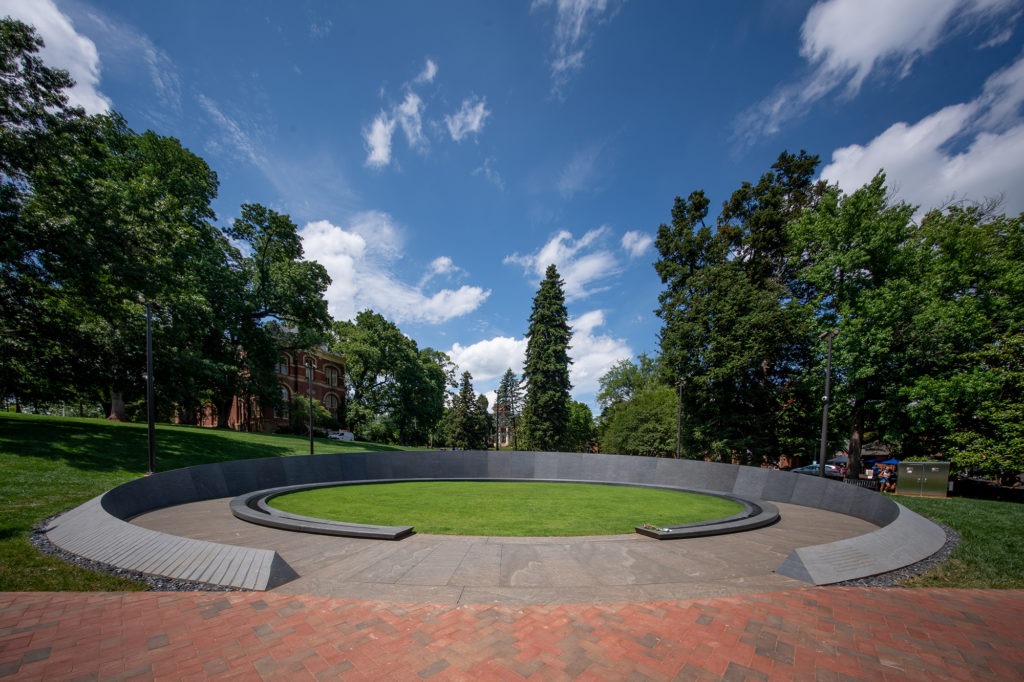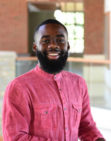Reparations has recently resurfaced in public discourses. Most notably, we have seen scholars and even politicians trying to center the conversation as a way to highlight a compensatory payment for African Americans, based on two centuries of unpaid slave labor. While a lot of this discussion typically centers around the political, this project seeks to examine the institutional, as a way to understand how reparations pose challenges for colleges and universities and to also see how these institutions have approached the topic of reparations more broadly. As a graduate student at the University of Virginia, I wanted to explore how UVA has or has not taken adequate steps to ensure that it is a leading institution in creating policies that acknowledge and provide forms of reparative justice.
Like most colleges and universities, UVA was largely built and maintained by slaves. While there has been extensive documentation to demonstrate this, the University has taken minor strides to acknowledge how foundational slavery was to its wealth accumulation, as well as its architectural aesthetic. Recently, the University has made attempts to acknowledge this history by erecting the new Memorial to Enslaved Laborers. While moments and memorials such as this are important to the community and the history of the school, it is purely symbolic and proponents of reparations seek measures that are more tangible.

Memorial to Enslaved Laborers, University of Virginia
Also fundamental to this story and this history, is the role Thomas Jefferson plays. Jefferson has a seemingly unblemished image at UVA. Following the dominant narrative, Jefferson is the leading pioneer of the Declaration of Independence and a prominent defender of American rights and liberties. He is known as the individual who is greatly responsible for many of the values and ideals that are foundational to the American establishment.
This project does not seek to dispute the political life of Jefferson, but rather, seeks to position his place at the University in more detail by recognizing the trauma, violence, and brutality that was perpetuated by him and other beneficiaries of slavery at the time. Jefferson’s legacy is accompanied by the individuals who are decedents of his plantation, which makes this discourse on reparations all the more relevant. Today, there are individuals in the Charlottesville and UVA community who have traced their slave lineage to Jefferson and his Monticello plantation. They have a direct stake in this question of what reparations might look like for descendants at the school.
Reparations: What UVA Owes, dives into the complexities of reparations, but also aims to serve as a medium to highlight the voices of those who have been fighting for social justice at the University and the larger Charlottesville community. In addition, part of the task here is to dismantle the myths that minimize the importance of reparations as something that is too complex or too far gone from our societal purview. However, this podcast demonstrates that as long as the remnants of institutional slavery still encompass the spirit of America and our institutions, then the demands of reparations will always be relevant.
Additional Reading
Ta-Nehisi Coates, “The Case for Reparations” June 2014, https://religionlab.virginia.edu/projects/eatonville-holding-on-to-history/
Brian Cameron, Morgan Feldenkris, and Allie Arnold, “Housing the University: Student Housing and Displacement in Charlottesville, Virginia”, https://www.arcgis.com/apps/MapJournal/index.html?appid=b6c884f9dee140049cd17e4c538874ec
Stephanie Ebbs, “Georgetown University announces reparations fund to benefit descendants of slaves once sold by the school” October 30, 2019, https://abcnews.go.com/Politics/georgetown-university-announces-reparations-fund-benefit-descendants-slaves/story?id=66642286
Get Involved
Learn about forthcoming podcast episodes, newly published projects, research opportunities, public events, and more.
Potential Students


